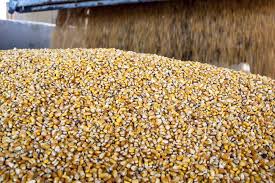Here below the summary of the above mentioned audit report:
“This report describes the outcome of a DG Health and Food Safety audit in Belgium, carried out between 19 September 2017 to 29 September 2017, under the provisions of Regulation (EC) No 882/2004 on official food and feed controls.
The objective of the audit was to evaluate the controls on organic production and labelling of organic products.
The control system for organic production in Belgium is only partially in place. There is no competent authority responsible for import controls of organic goods, and market controls only cover follow up of complaints and control bodies are not annually supervised by all regional competent authorities.
Although inspections by control bodies at operators are overall effective and the number of additional and unannounced inspections and sampling by control bodies goes far beyond EU requirements, enforcement is weak, in particular, in cases of severe and recurrent irregularities.
This, together with the fact that the likelihood of irregularities are neither reported to competent authorities nor fully investigated by them reduces the effectiveness of the control system.”
This report highlights some typical factors that increase the likelihood of frauds in the organic sector:
- weak import controls are the main gate for fraudulent activities. The organic market is assuming a huge dimension in EU and we cannot rely on internal production to cover the needs of raw materials. Certain commodities are in large parte – or mainly – imported: this is the case for instance of many grains and cereals, lentils, tree nuts…
- the hybrid nature of the control bodies (CBs) is a major weakness as well: in most Member States they are private bodies invested of a public function (namely do the controls for the competent authorities). That means that they have the obligation to report irregularities to the competent authorities (CAs), but they are also competing hard with other CBs to survive on the market. Therefore they could be not so keen to share information about investigations, especially on sensitive cases, with the CAs. They often tend to protect the certified food business operators, that to a certain extent are also their “clients”;
- the weak supervision of the CAs on the CBs can foster illegality and in any case allows a less transparent management of non compliance cases, for reasons explained in point 2.
The good news is that in most countries the number of inspections is above EU requirements and that they are unannounced, but in our experience on the ground in several Member States the CBs are too focused on paperwork and much less on the fields. An illegal treatment of crops might be spotted much better from a walk beneath them, than from a registry.
Consumers and regulators often rely on labeling and traceability as tools to prevent similar frauds (conventional food passed as organic, country of origin different from what declared), but since these tool are only “paper” they are quite easy to fake for any experienced fraudster. Moreover, they increase the final costs of the products, increasing as well incentives for fraudsters.
The organic sector is mainly involved in what we can call “commercial frauds”: they involve quality and usually are not likely to cause any risk for the public health. As a consequence, in my opinion, this could be one of the sectors where new technologies that might secure transactions along the supply chain and reinforce traceability, including blockchain, should be applied first and get the better added value.


Strong Organic Control System can minimize frauds
LikeLike